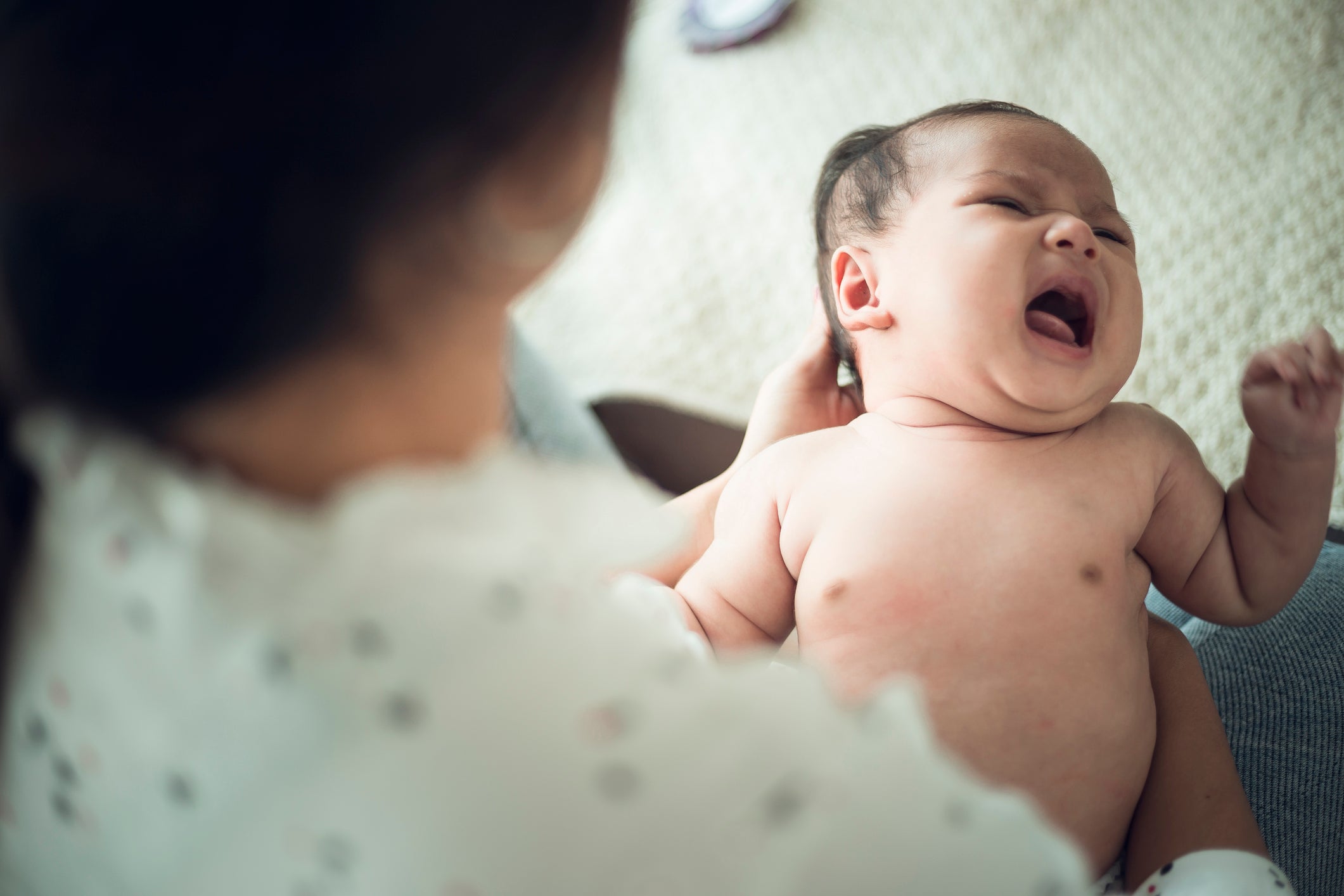-
Knowing the Symptoms of Diabetes

If you have diabetes, it’s important that you are made aware of it as soon as possible so that you can take steps to protect your health. Diabetes has a number of warning signs that you should be alert to, including increased hunger and thirst, a constantly dry mouth, and an unusually persistent need to urinate. Other common symptoms of diabetes include chronic fatigue, sudden weight loss, and severe headaches. You may also experience blurred vision. If you are experiencing any or all of these symptoms, you should talk to your physician as soon as possible.
If you are concerned about a misdiagnosis or possible medical error, contact the law firm of Pegalis & Erickson LLC in New York. For 45 years, we have advocated for people of all ages, in order to help our clients financially and make healthcare safer for everyone. You can reach us today by calling (516) 684-2900.
Attorney Advertising
-
How To Talk to Your Doctor About Pain

Pain can be difficult to describe. If you are suffering from pain, whether it is chronic or periodic, it’s important to be able to talk to your doctor about it effectively. Explain where the pain is felt in your body, how frequent it is, and how severe it is on a scale of 1-10. If you feel any specific sensations such as tingling, numbness, burning, or aching, be sure to talk about that. You should also mention if the pain is interfering with your life in any way, such as making it difficult for you to engage in your normal daily activities. Finally, tell your doctor if you have tried any pain relief methods, such as over-the-counter medications. The more information you provide your doctor with, the more likely it is that he or she will be able to help you.
If you are concerned about a misdiagnosis or possible medical error, contact the law firm of Pegalis & Erickson, LLC in New York. For 46 years, we have advocated for people of all ages, in order to help our clients financially and make healthcare safer for everyone. You can reach us today by calling (516) 684-2900.
Attorney Advertising
-
Understanding and Preventing Falls in Hospitals

Hospital falls are extremely common. Hundreds of thousands of people sustain fall-related injuries in hospitals in the U.S. every year. In fact, September 22 was Falls Prevention Awareness Day. Make yourself aware of what causes hospital falls—and how you can prevent them. Here is what you need to know about hospital falls.
Who is most likely to fall in a hospital?
While anybody can slip and fall, falls in hospitals most frequently happen to patients who are at higher than average risk of falling, such as those who do not have the ability to stand and walk safely on their own. Patients who suffer from vertigo or other balance-related conditions are also at high risk of falling, as are patients who are taking certain medications. The older a person is, the more likely he or she is to be seriously injured in the event of a fall.What hospital policies contribute to falls?
Often, hospital personnel fail to properly assess a patient’s condition, and thus fail to take preventive action to protect them from falling. In particular, bed-exit alarms should be set up so that hospital staff can be alerted if the patient tries to get out of bed without assistance. A hospital staff member should be available at all times to answer the alarm and assist the patient.What can hospitals do to prevent falls?
Patients who are at risk of falling should be given beds that are lower to the floor, and they can also be provided with no-slip footwear. When patients have a condition or are taking medications that could make them lose their balance, hospital staff should be aware of it. Most importantly, hospital personnel should be ready to timely-assist a patient in the event that he or she needs to leave the bed.If you are concerned about a misdiagnosis or possible medical error, contact the law firm of Pegalis & Erickson, LLC in New York. For 46 years, we have advocated for people of all ages, in order to help our clients financially and make healthcare safer for everyone. You can reach us today by calling (516) 684-2900.
Attorney Advertising
-
What Causes a Child’s Shoulder Dystocia?

When a baby’s head is delivered but the shoulders are stuck, it is known as shoulder dystocia. It is a rare but serious birth complication, and it can cause injury to the newborn. There are a number of factors that can make shoulder dystocia more likely to happen, including obesity, diabetes, and overdue pregnancy. Having a baby that is larger than usual, also known as large for gestational age, can also raise the risk of shoulder dystocia. Being alert to these risk factors can help your doctor take measures to help ensure that your delivery proceeds safely.
If you have any concerns about baby or mom after delivery such as a misdiagnosis or possible medical error, contact the law firm of Pegalis & Erickson, LLC in New York. For 46 years, we have advocated for people of all ages, in order to help our clients financially and make healthcare safer for everyone. You can reach us today by calling (516) 684-2900.
Attorney Advertising
-
How Is Breast Cancer Diagnosed?

As many as 1 out of every 8 women in the United States will develop breast cancer, with hundreds of thousands of new cases of the illness every year. After lung cancer, it is the single deadliest type of cancer for American women. Here is a brief introduction to how breast cancer is diagnosed in patients.
What tests are used to diagnose breast cancer?
There are several tests that can be administered to diagnose breast cancer. Your doctor can do a physical exam to check for lumps, and they can also use a mammogram—a radiological study—to look for early signs of cancer. If a suspicious lump is found, an ultrasound or an MRI scan may be used to try to evaluate it. If necessary, a biopsy—a taking of tissue sample—can be done to check the tissue for cancer.When should I be tested for breast cancer?
You may want to begin doing annual breast cancer screenings, including mammograms, in your early 40s. After the age of 45, annual mammograms are recommended for all women. After the age of 55, you may want to switch to doing a mammogram once every two years, or as often as your doctor advises. If you have a family history of breast cancer or are a BRCA positive gene carrier, you should speak with your physician because screening is often done earlier and testing may include mammograms along with sonograms and MRI annually. It’s important to be alert to any changes in your breasts, such as developing lumps, discharge, skin changes, that were not there in the past. While not all lumps are cause for concern, you may want to ask your doctor if you are worried about them.If you are concerned about a misdiagnosis or possible medical error, contact the law firm of Pegalis & Erickson, LLC in New York. For 46 years, we have advocated for people of all ages, in order to help our clients financially and make healthcare safer for everyone. You can reach us today by calling (516) 684-2900.
Attorney Advertising
-
Spotlight on the Flu Shot

The 2018-2019 flu season is expected to be a severe one, so it’s important to obtain your flu shot as soon as possible. While the flu vaccine cannot avert every instance of flu, it is still the most effective means of prevention. It’s also important to ensure that your flu is correctly diagnosed. If your symptoms subside and then suddenly return, seek immediate medical attention. Misdiagnosis of flu can lead to serious complications, especially for children and the elderly. The sooner you start taking medication for your flu, the shorter your illness is likely to be.
If you are concerned about a misdiagnosis or possible medical error, contact the law firm of Pegalis & Erickson, LLC in New York. For 46 years, we have advocated for people of all ages, in order to help our clients financially and make healthcare safer for everyone. You can reach us today by calling (516) 684-2900.
Attorney Advertising
-
Spotlight on Preventable Emergency Room Errors

When you go to the emergency room, it’s only natural to assume that you will be well taken care of by conscientious care providers. Unfortunately, mistakes do happen—and even experienced healthcare professionals can make them. In fact, emergency room errors are far more common than you might assume. These are some of the types of preventable emergency room errors that are most likely to occur.
Medication Errors
In the atmosphere of an emergency room, it’s entirely possible for medication errors to happen—and the results can be serious. A patient may receive a dosage that is too high, one that is too low, or even the wrong medication entirely. If you’re not getting the correct level of medication—or worse, a medication that isn’t intended for you—it can make your condition worse.Misdiagnosis
If you aren’t properly diagnosed when you get to the emergency room, you won’t get the treatment you need. Here’s a possible scenario: A patient’s appendicitis is mistaken for ordinary stomach pains, and he or she is prescribed medication and discharged instead of an emergency appendectomy to avoid a burst appendix and possible sepsis.Misreading Test Results
When a test is given to you at an emergency room, it’s important that the staff reading it does so properly. Tests are essential for determining the nature of your condition so you can proceed with the appropriate treatment. If your test results are misread or misinterpreted, and you are discharged from the emergency room, it can result in serious injury or even death. For example, if a radiologist fails to read a chest X-ray properly that shows developing pneumonia, and you are discharged without proper medication, it can lead to sepsis and even death.If you are concerned about a misdiagnosis or possible medical error, contact the law firm of Pegalis & Erickson, LLC in New York. For 45 years, we have advocated for people of all ages, in order to help our clients financially and make healthcare safer for everyone. You can reach us today by calling (516) 684-2900.
Attorney Advertising
-
Should You Get a Second Opinion?

If you’ve recently received a significant finding from your physician, you may be wondering whether it’s a good idea to seek out a second opinion. In general, if you have any doubts about your first diagnosis, there’s no harm in getting a second opinion from a different healthcare provider. However, you may also want to get a second opinion if you have nagging symptoms and you have been told that there is nothing wrong with you. By the same token, if you’ve received a serious diagnosis that requires major changes in your life—such as going on a new medication indefinitely—it’s smart to seek a second doctor’s opinion. If the two providers’ opinions are the same, you’ll be able to enjoy greater peace of mind.
If you are concerned about a misdiagnosis or possible medical error, contact the law firm of Pegalis & Erickson, LLC, in New York. For 45 years, we have advocated for people of all ages, in order to help our clients financially and make healthcare safer for everyone. You can reach us today by calling (516) 684-2900.
Attorney Advertising
-
Ovarian Cancer Awareness Month: Understanding Your Risk Factors

Ovarian cancer is a type of cancer that develops in a woman’s ovaries. While ovarian cancer is relatively rare, it’s important to diagnose it in its earliest stages so that it can be treated effectively. Unfortunately, ovarian cancer is difficult to diagnose easily because its symptoms are subtle. Since there is no screening for early ovarian cancer, it’s important to talk to your doctor if you are considered to be at risk. September is Ovarian Cancer Awareness Month, so it’s the perfect time to check yourself for the symptoms which include bloating, pelvic or abdominal pain, vaginal bleeding, weight gain or loss, change in bowel or bladder habits, to name a few. These are some of the main risk factors for developing ovarian cancer:
- Family history of ovarian or breast cancer
- A personal history of breast cancer prior to age 40
- A personal history of breast cancer prior to age 50 as well as one or more relatives diagnosed with breast or ovarian cancer at any age
- Two or more close relatives diagnosed with breast cancer prior to age 50, or with ovarian cancer diagnosed at any age
- Ashkenazi Jewish Heritage and a personal history of breast cancer prior to age 50
- Ashkenazi Jewish Heritage and a first or second-degree relative diagnosed with bread cancer prior to age 50, or with ovarian cancer at any age
- The BRCA1 or BRACA2 genes put you at high risk. 1 in 5 or higher if you inherited certain mutations in genes that are involved in cell growth division and DNA repair
If you are concerned about a misdiagnosis or possible medical error, contact the law firm of Pegalis & Erickson, LLC in New York. For 46 years, we have advocated for people of all ages, in order to help our clients financially and make healthcare safer for everyone. You can reach us today by calling (516) 684-2900.
Attorney Advertising
-
Patient Safety Tips: Reducing the Risk of Medication Errors
As a patient, it’s only natural to assume that you will be adequately cared for by every health care provider who serves you. Unfortunately, negligence in the medical world is all too common. One of the most dangerous forms of medical negligence is also one of the most common—medication errors. Here are a few tips to help you protect yourself from medication mistakes.
Get as much information as possible.
Don’t be afraid to ask any questions about your new medications that may come to mind. Make sure you know both the brand and the generic name of the medication, what you should do if you miss a dose, and whether there are any side effects that you should be aware of. Also, make sure that you have a phone number to call if you have any additional questions.
Follow the directions exactly.
When you get a new medication, you’ll need to have your doctor or a pharmacist explain to you how you are supposed to take it. This means you’ll need to know when and how often to take it, whether you need to take it on an empty stomach, what foods and drinks you need to avoid while taking it, and whether it is safe to take it in combination with other medicines or supplements. Enlist the help of your pharmacist to make sure all the medications you are taking are compatible.
Find out how to store your medications.
It’s important that you know how to keep your medications so that they remain both safe for you to take and as effective as they are meant to be. Some medications will need to be kept at room temperature, but others may need to be refrigerated. Make sure that you know the expiration date of your medications, and dispose of them when appropriate.Ask About Side Effects
Ask your doctor your doctor and pharmacist what the possible side effects are and what to look out for. If you experience a side effect call your doctor before taking any additional doses. Life-threatening reactions can present as a rash, therefore you must be aware of any changes in your body when starting new medications
If you are concerned about a misdiagnosis or possible medical error, contact the law firm of Pegalis & Erickson, LLC, in New York. For 45 years, we have advocated for people of all ages, in order to help our clients financially and make healthcare safer for everyone. You can reach us today by calling (516) 684-2900.Attorney Advertising

Recent Posts
Popular Posts
categories
- Uncategorized
- Infographic
- Patient Safety
- Patient Health
- Stillbirth
- Birth Injuries
- Medical Malpractice
- Medical Negligence
- Event
- Erb's Palsy
- Injury
- ER
- Video
- Cancer Misdiagnosis
- Medication Errors
- Cerebral Palsy
- Medical Negligence Lawyer
- Anesthesia Injuries
- Brachial Plexus
- Prostate Cancer
- About Us
- Men's Health
- Skin Cancer
- Breast Cancer
- Misdiagnosis
